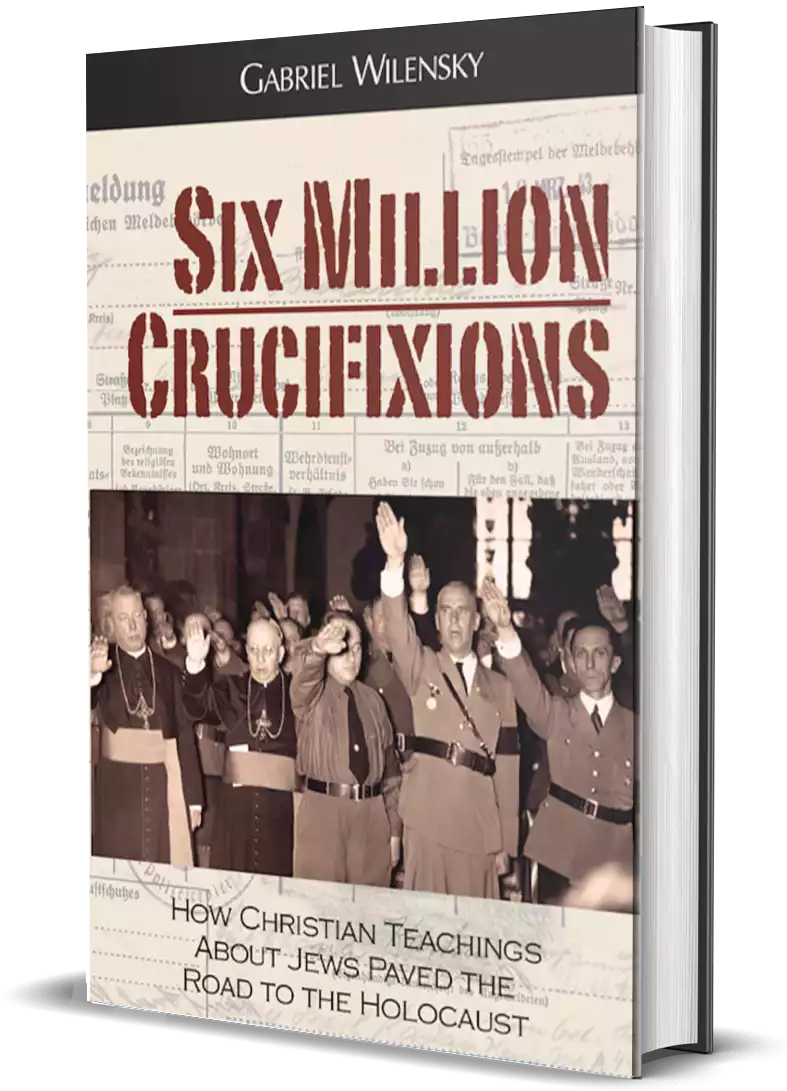Bolshevism is the mortal enemy of the Church
The Bolshevik Revolution was a watershed event that brought down the Romanovs and a long tradition of Tsarist rule in Russia. But the October 1917 revolution that took the communist ideas of Karl Marx and twisted them into the ideas that eventually dominated the landscape of the Soviet Union brought with it an even more dangerous idea: atheism. The Catholic Church had been reeling from more than a century of modernist ideals that began during the Enlightenment and were widely adopted after the French Revolution. The various populations of Europe had been gradually embracing secular ideas with a concomitant loss of Church power and control of the population. In this environment, a revolutionary movement that brought down an empire and imposed atheism by force clearly posed an intolerable risk to the Church.
After the Great War, a cataclysmic event that marked the end of the old order, brought down several empires and dislocated millions of Europeans, the Church hierarchy had no doubt of whom the real enemy was. Long before the Nazis came to power in 1933, Pope Benedict XV sent Achille Ratti (the future Pope Pius XI) to Poland in 1918 to improve the situation of the Jewish community there, but instead Ratti did everything possible to impede any Vatican action on behalf of the Jews. He wrote in a report of his experience in Poland, “the Jews form the principal force [of Bolshevism] in Poland” and, relating his experience in Warsaw, Ratti reported, “I saw that the [Bolshevik] Commissioners . . . were all Jews.” The association of Jews and Communism in the Christian worldview would have lethal consequences just a few short decades later.
There is a report that Archbishop Pacelli (the future Pius XII) gave Hitler money while he was nuncio in Munich in 1919 so Hitler could fight the Communists. Would Pacelli actually finance a movement he considered ‘anti-Catholic’? The answer is, most likely yes. People make deals with all sorts of people for all sorts of reasons, if it’s beneficial to them. Western democracies make deals with their self-declared enemies, fundamentalist theocracies, openly anti-democratic, anti-liberal, anti-freedom, anti-women, anti-gay and anti-everything the West stands for, because the West has something to gain from that sort of relationship. To Archbishop Pacelli, who had a personal hatred of communists and Communism, and who understood very well that a Bolshevik victory in Europe would mean the demise of the Catholic Church, engaging a Catholic rabble rouser and self-avowed defender of the world against Communism must have made a lot of sense, even when this Catholic thug may have appeared to be “anti-Catholic”. I believe this understanding of the dynamics at play dominated Pacelli’s life from that point onwards.
“The Church knew very well that if the Communists won, that would have been the guaranteed end of the Catholic Church. In the titanic struggle that ensued during the Second World War, Pope Pius XII knew that the Nazis were the only bulwark against Communism, and we must keep this in mind when pondering about the Pope’s silence vis-à-vis the heinous Nazi crimes including the extermination of the Jews.”
I find it completely plausible that Pacelli would have funded an anticommunist group, and anticommunist the Nazis certainly were. Defenders of Pope Pius XII typically argue that Pacelli did not become fanatically anticommunist until after the war when he feared a Communist takeover of Italy. But in reality Pacelli had become an anticommunist right after WWI when the communists that had taken over the government of Bavaria attacked him at the Munich Nunciature. In 1919 Hitler did not have enough sources of funding. Like any politician of his time, and of any time, he sought and received funding from many sources, and that surely included the Apostolic Nuncio.
Also, Pacelli continued to invest in this “anti-Catholic” devil, as as Vatican Secretary of State during the 1930s he was instrumental in persuading Pope Pius XI to make enormous investments in Germany, including investing the vast sums the Vatican received from Mussolini as a result of the Lateran Pact.
Cardinal Pacelli said that Nazism was a greater heresy than Communism. However, both Nazism and Communism were secular regimes, so the notion of heresy when applied to them is nonsensical. So, that Pacelli thought Nazism was a great heresy is immaterial to any discussion. In any case, neither his boss Pope Pius XI nor Pacelli himself once he had become pope felt this “heretical” regime to be sufficiently bad to dissociate the Catholic Church and the Catholic faithful from it beyond 1933.
Indeed, in 1937 the Dutch weekly Der Deutsche Weg wrote in amazement about the warm attitude the German bishops showed toward Nazism. They wrote that “despite the inhuman brutalities perpetrated in the concentration camps, despite the currency and defamation trials, despite the personal insults against individual princes of the Church, against the Holy Father and the entire Church, and in spite of all hostile measures amounting to another Kulturkampf, . . . the bishops find words of appreciation for what [next to Bolshevism] is their worst enemy.” As Hitler told Cardinal Faulhaber before the war, “The Catholic Church should not deceive herself: if National Socialism does not succeed in defeating Bolshevism, then Church and Christianity in Europe too are finished. Bolshevism is the mortal enemy of the Church as much as of Fascism.”
The Church knew very well that if the Communists won, that would have been the guaranteed end of the Catholic Church. In the titanic struggle that ensued during the Second World War, Pope Pius XII knew that the Nazis were the only bulwark against Communism, and we must keep this in mind when pondering about the Pope’s silence vis-à-vis the heinous Nazi crimes including the extermination of the Jews. As much as the Pope may have disliked Nazism and Hitler, in his realpolitik calculation the sacrifice of six million Jews must have been acceptable if that was what it took to save the Catholic Church from what to them was a mortal and implacable foe.

Grab Your Copy Today!
Six Million Crucifixions
Traces the history of antisemitism in Christianity and the role that played in making possible the Holocaust.
Want to stay informed about the topic?
Subscribe below.

